1561. What’s the Defense for Antoni’s Nomination?
An argument that critiques the nomination of Antoni as BLS Commissioner, highlighting his lack of academic credentials and statistical experience while defending his conservative perspective.
your daily dose of economic commentary
An argument that critiques the nomination of Antoni as BLS Commissioner, highlighting his lack of academic credentials and statistical experience while defending his conservative perspective.
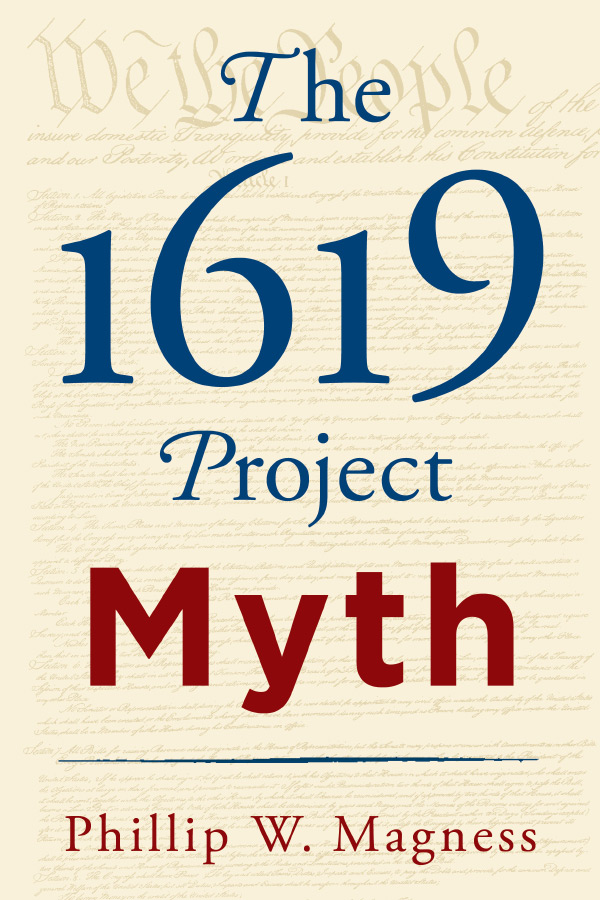
The post discusses various topics including healthcare policy, immigration processing delays, and judicial failures related to mass incarceration, highlighting the need for reforms in these areas.

The Associated Press reports on Air Canada's decision to suspend flight restart plans due to a union's defiance of a return-to-work order.

The author reflects on sleep issues related to a mattress, shares experiences with family, and discusses a conversation about the father's programming career and its context in business.

Hydropower in Washington has spurred job creation and infrastructure development, but concerns about sustainability and resource limits are emerging.

Noah Smith discusses the controversy surrounding embryo screening and societal attitudes towards genetic disorders, linking it to broader themes of human suffering and technological progress.

An argument that despite widespread unpopularity of taxes, democratic governments successfully impose high tax rates by aligning them with perceived benefits for voters.
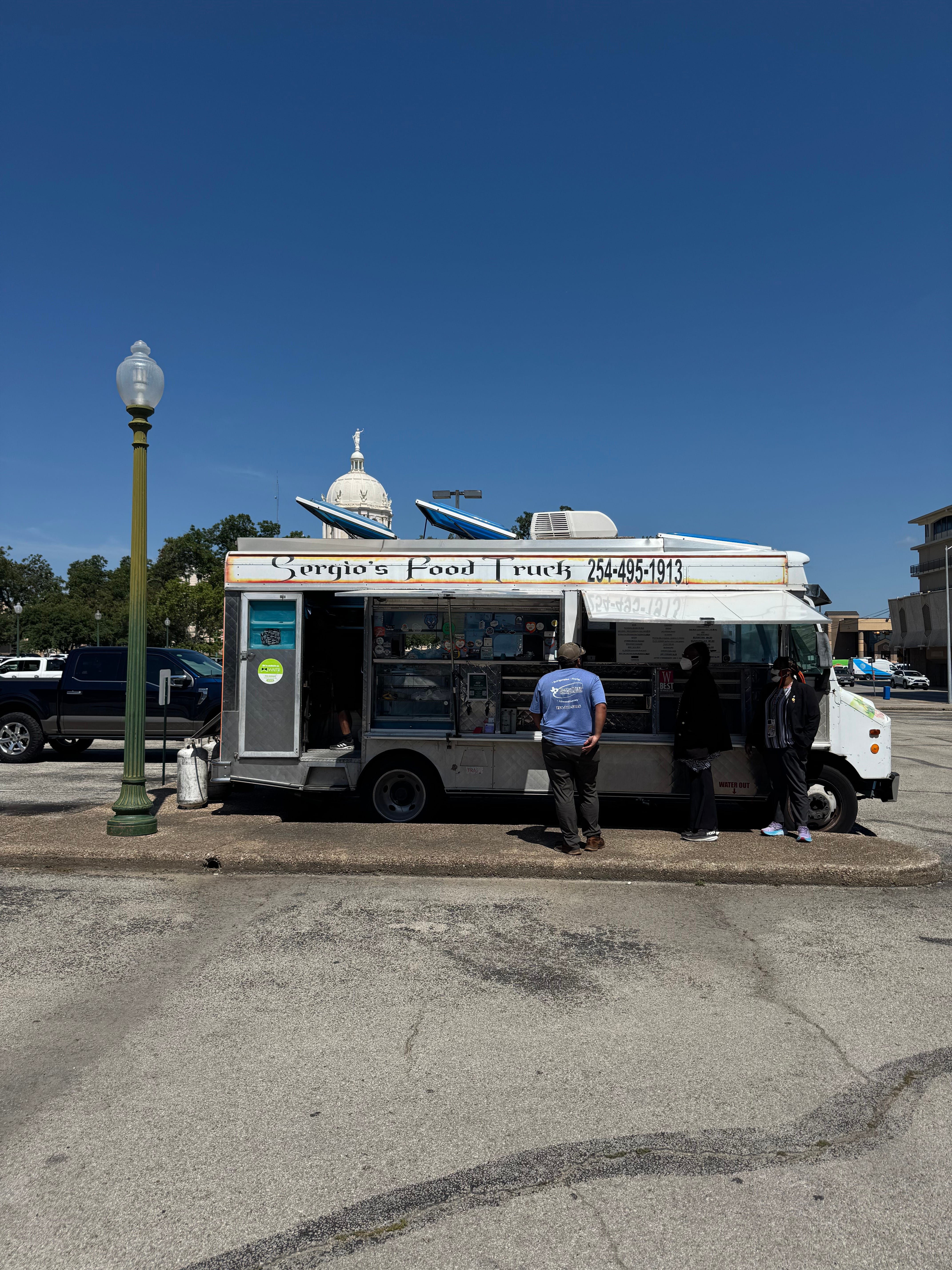
Scott Cunningham reflects on his experiences with Sergio’s burrito truck, discussing personal connections, economic concepts, and the impact of local business dynamics in Waco.

Paul Krugman discusses urban crime trends with Jeff Asher, emphasizing data analysis and the implications of crime statistics amid political narratives surrounding crime in Washington, D.C.

Over 10,000 Air Canada flight attendants went on strike, disrupting travel plans for many during the busy summer season.

The post outlines key economic reports and events scheduled for the week, focusing on housing data and a speech by the Federal Reserve Chair.

Scott Simon reflects on the life and friendship of his former NPR colleague Ted Clark, honoring his memory and contributions.

Laurel Wamsley discusses the potential inclusion of private equity and cryptocurrency in 401(k) retirement accounts following a recent executive order.

Scott Horsley discusses the rapid increase in electricity prices compared to inflation and the factors contributing to this rise.
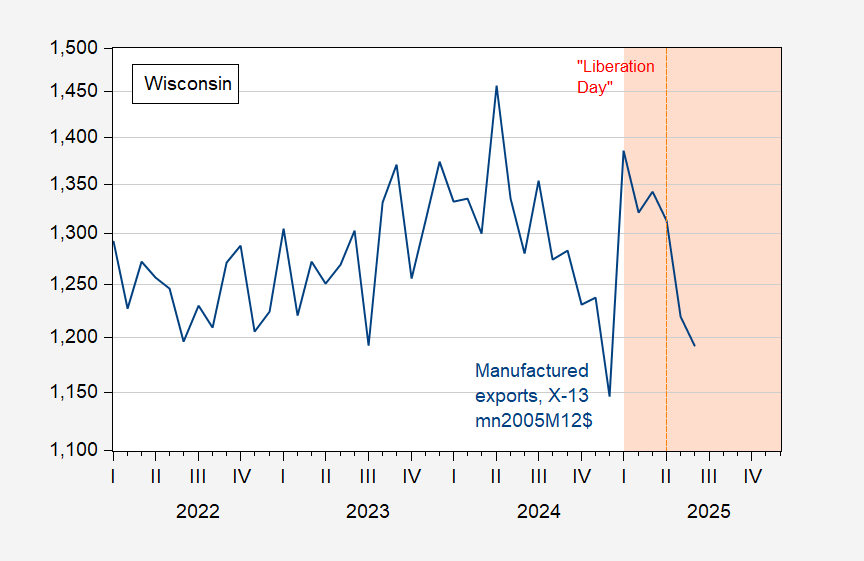
The post discusses declines in manufacturing employment and exports in Wisconsin, highlighting recent employment data from the Department of Workforce Development.
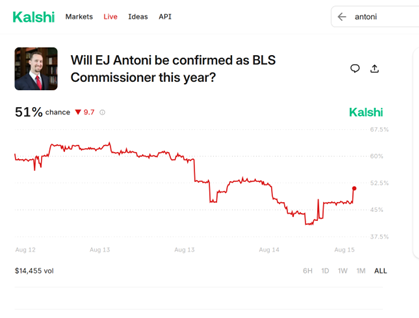
Menzie Chinn discusses Dr. Antoni's controversial views on the economy and his candidacy for BLS Commissioner, highlighting his skepticism towards economic data and policies.

Bobby Allyn discusses a class-action lawsuit against Otter AI for allegedly recording private work conversations without user consent.

Timothy Taylor discusses how international royalty payments can measure China's shift from a technological follower to an innovator in the global economy.
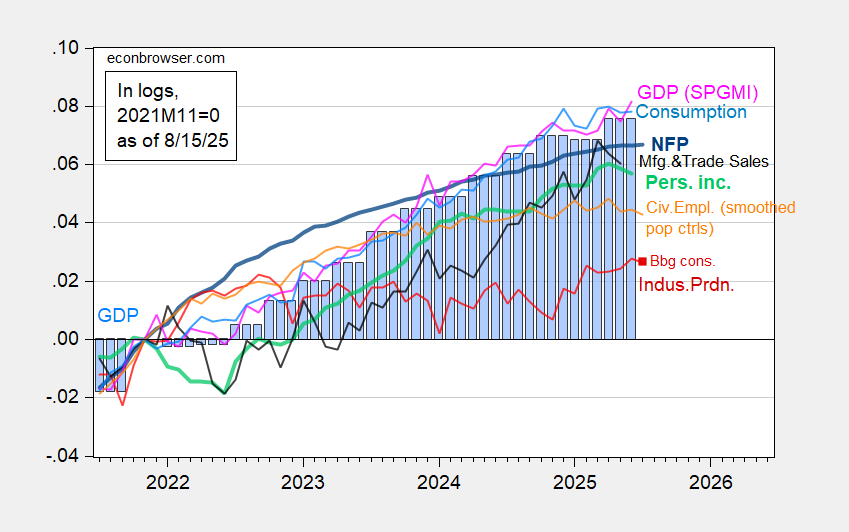
The discussion focuses on recent economic indicators, highlighting declines in industrial production and retail sales compared to previous peaks, while noting the rising coincident index.

The post discusses the Trump administration's decision to release funds for EV chargers despite initial opposition to federal subsidies.